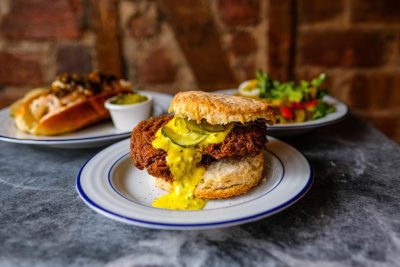A Ray Of Reason Shines in Girls
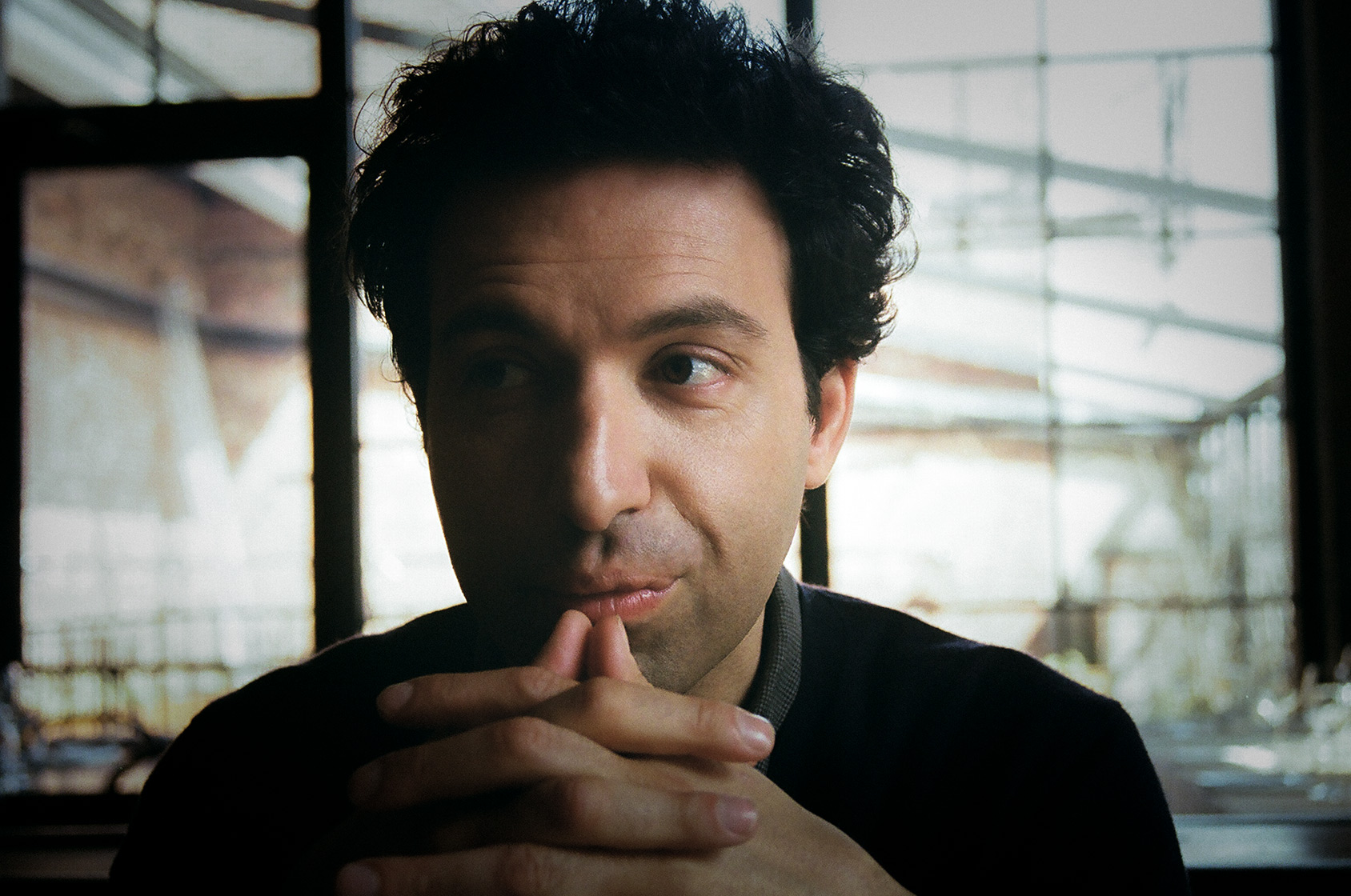

Alex Karpovsky didn’t think Girls was going to work.
“I’m an idiot in many ways,” he says, carefully choosing his words as he recalls the time his good friend Lena Dunham approached him about a role on her new series. “I [didn’t] know what people would like and not like. I had doubts that this very specific sensibility would translate to a mainstream platform like HBO. When Lena was making the show, I was like this is wonderful, and I think it would be so fun to do, but no one’s going to watch this. This is way too weird and narrow. These characters are way too unlikable… or whatever it is. But, like many things in life, I was wrong, and the show kept going.”
He was very wrong, in fact. For six seasons, not only have people been watching Girls, they have been talking about it, perhaps, more than any other show on TV. It has invited praise, criticism, and countless think pieces on a seemingly-weekly basis. At the quasi-center of it all is Karpovsky’s character, Ray Ploshansky: a 30-something slacker with a vocal opinion on any- and everything that may enter into the scope of his ever-evolving worldview.
Karpovsky, who now lives in Los Angeles after growing up in Massachusetts and spending nearly 17 years in Brooklyn, is happy to be back in the neighborhood where much of Girls was filmed, and where he lived for years. When I told him I needed to move out of my current place, and wondered what Brooklyn neighborhood he thought would be best for me, he asked how old I was. I spilled the beans that my 24th birthday had just passed. Now 41, Karpovsky had a quick pick: “I’d probably go to Bed-Stuy. That’s where the fun is.”
We’re sitting in the back room of Reynard, the restaurant embedded inside the Wythe Hotel, and Karpovsky is sipping a green tea. He’s in town for an appearance on Late Night with Seth Meyers, his first late night talk show. From the very beginning of Girls, the character Ray made for an important foil; the closest thing the show established to a straight man, bouncing off its wide array of unsympathetic (but sometimes, as much as we may not want to admit them to be, relatable) group of imperfect 20-somethings.
Even after agreeing to Dunham’s proposition to join the show, Karpovsky—who appeared alongside the creator in Tiny Furniture, her 2010 independent film debut—never expected that his character would become such an integral piece of the Girls fabric. Although he entered the series on a recurring basis, his presence eventually became indispensable. By the second season, after establishing a chemistry with Zosia Mamet’s character, the bubbly and animated Shoshanna, Dunham and co-executive producer Jenni Konner elevated Karpovsky to a main cast member for all subsequent seasons.
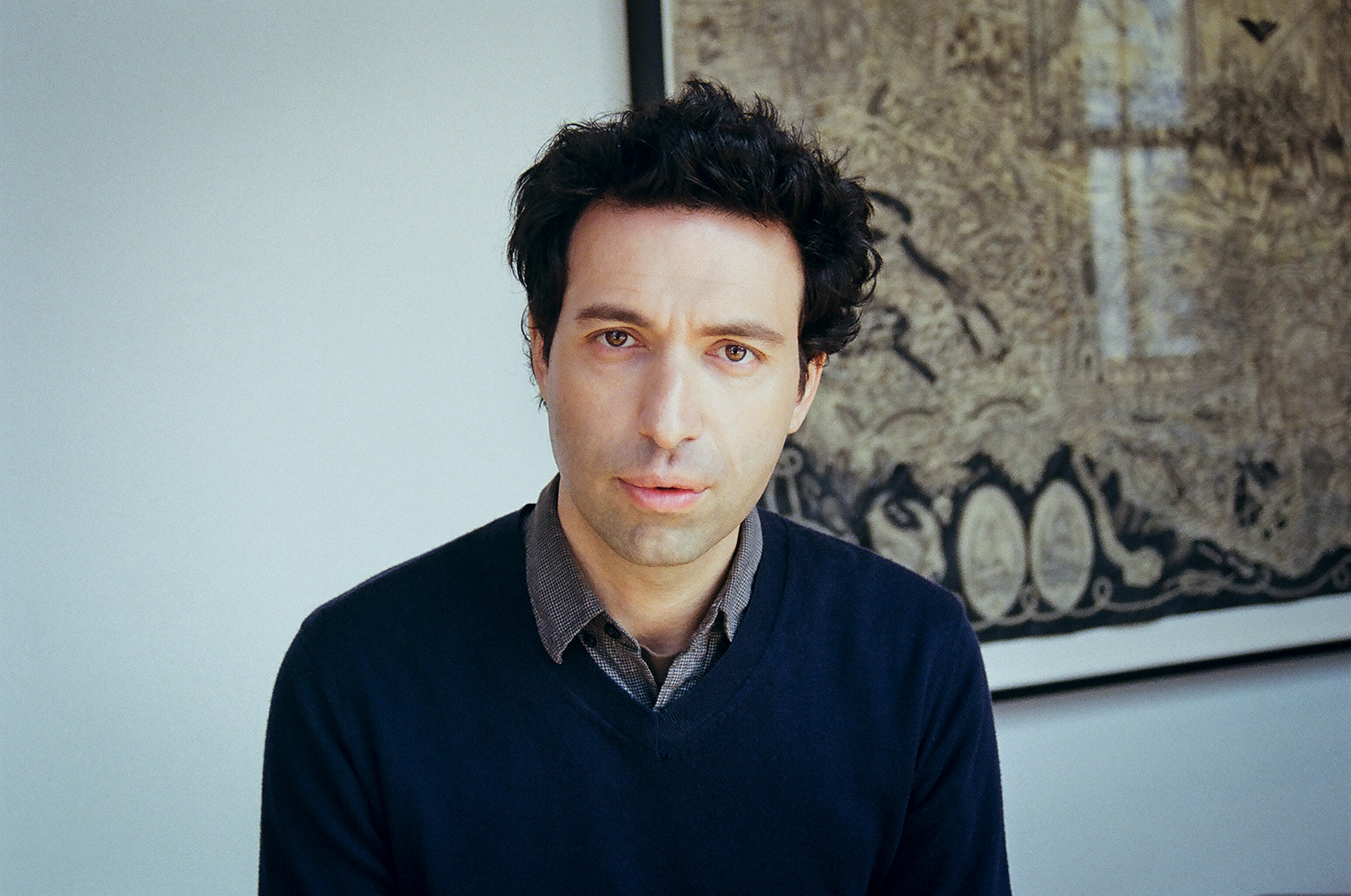

Ray has his own shortcomings for sure: He’s cranky, neurotic, and seems to have some degree of difficulty with commitment. But compared to the behavior offered by the other main characters—the blindly self-centered nature of Allison Williams’s Marnie, the psychotic, angry tendencies of Adam Driver’s Adam, the complete lack of regard for others displayed by Jemima Kirke as Jessa, and the whirlwind combination of all of those in Dunham’s own Hannah—Ray almost always comes out of the sway as the show’s moral center, a voice of reason, and an entry point for the viewer into a world that can so often be filled with infuriating behavior.
Karpovsky agrees. He sees the purpose he serves in the grand scheme of what the show is trying to say as putting certain characters in their place when they need to be put in their place, or offering up sage advice (“Old Man Ray,” as one character calls him, is the most senior of the bunch) whenever he can. “I think the audience has a lot of frustrations about some of the girls,” he says. “And if there’s a character on the show that can beat them to the criticism? Then I think it helps make the show more watchable in some ways.”
“Often his golden advice is unforeseen and unexpected, but there just when somebody needs it. He’s kind of like our Dumbledore.”
That criticism, as many have put it, is absolutely vital in establishing the fact that Girls, as it exists, is not an endorsement of the behaviors of some (read: most) of its characters. These are far from perfect people. They are young and finding their ways through the world, making mistakes along the way; saying dumb things, making bad decisions—which is to say, they are people just like me, and just like you.
Given that, his fellow cast members are glad he’s there, too. “You know how often in a film there’s a wise old character, somebody not necessarily in the forefront, and definitely unexpected, who subtly guides the lost characters of the tale in the right direction? That’s Ray,” Zosia Mamet, who as Shoshanna Shapiro shares a lot of her screen time with Karpovsky, writes in an e-mail. “So, often his golden advice is unforeseen and unexpected, but there just when somebody needs it. He’s kind of like our Dumbledore.”
Karpovsky is also a filmmaker. He’s directed five independent features—none since Girls debuted in 2012—though he’s been able to keep relatively busy on that side of the camera in that time. With his friend and fellow Girls associate Teddy Blanks—they sometimes use the psuedonym ‘Spielbergs’—he’s co-directed a number of music videos (including a star-studded Tanlines video), and a few short films, like Amazon’s New Yorker Presents series, which featured a pair of his acting idols, John Turturro and Charles Grodin.
Last year, he had the opportunity to direct his first episode of Girls, and came through in a big way, helming the memorable season five episode that saw the return of Jenny Slate’s first season character (a guest star, who, as he put it, “is just bonkers talented”). I wondered, ideally, which other actors he’d most love to direct, in any project?
“I mean, gosh,” he started, hesitantly. “Once you start talking about actors, you can talk all day, and then after that day is done, you realize there are like 40 people you didn’t mention.” He’s been at this long enough, it’s evident, to know when not to say much more about certain things. But in this case, it’s clear it’s also because he understands how brimming with talent the industry, in its full entirety, really is. “So I don’t want to open that Pandora’s box,” he concludes. Now that Girls is over, he’s locked in to direct a third-season episode of Judd Apatow’s Netflix series Love, and is hoping to get behind the camera again for his sixth feature.
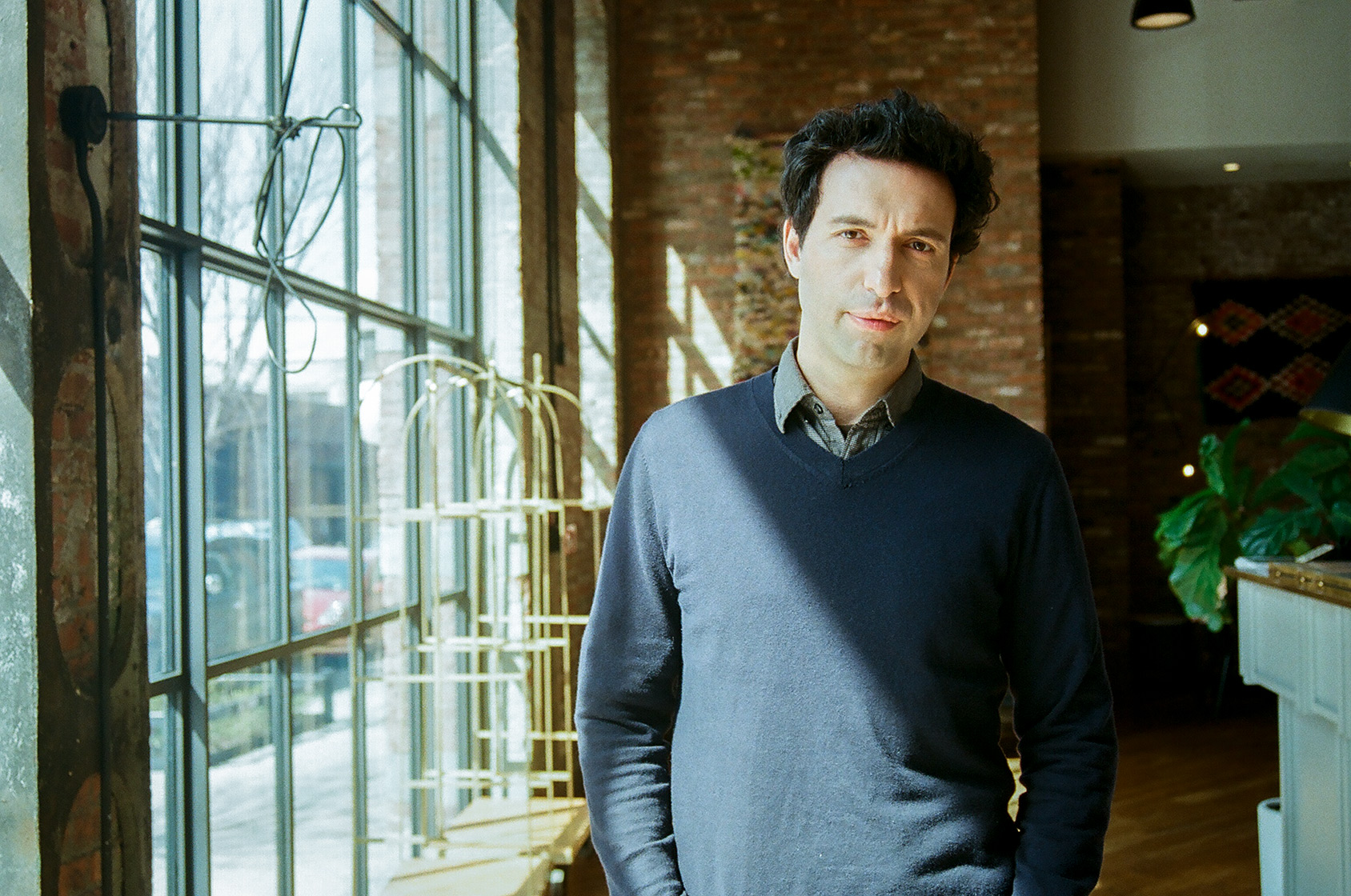
For any writer or director, there likely is not much better than having the opportunity to observe some of your personal heroes at work. Karpovsky cites a few of his favorite contemporary directors—Paul Thomas Anderson, Spike Jonze—that he hasn’t had the opportunity to observe yet. He has, however, worked twice with the Coen brothers, who have done nothing but create memorable and unique art over the last 30 years. In last year’s Hail Caesar!, and Inside Llewyn Davis before that, Karpovsky had small roles orchestrated by the genius director brothers.
And so while directing may be a passion, Karpovsky hasn’t exactly been disillusioned by the whole acting thing, either. “You do, like, 3% of the work, and you get 95% of the attention?” he asks rhetorically. “That’s a pretty good racket.”
I wonder, which show currently on the air might he like to act in? “Well, I guess I’d like to get into shows that I love watching, so I love watching Atlanta, I love watching Baskets. I think those would be two really fun shows to get into.” It is not, incidentally, hard to imagine Karpovsky getting into a show where Zach Galifianakis is a literal clown, and Louie Anderson plays that clown’s mother. “I also like Westworld,” he continues. “I think that would be a fun show to dive into. Any of those. I think me or Ray could maybe find a little bit of real estate there.”
I was intrigued by his mention of Westworld, HBO’s hit western/sci-fi/mystery series. Would Ray be a host or a human? “Oh, great question. He would probably be a host. Like, a host we haven’t seen—obviously. Maybe a host that’s a bit of a prankster—you think he’s one thing but he turns out to be something completely different. I think that would be fun.”
“You do, like, 3% of the work, and you get 95% of the attention? That’s a pretty good racket.”
In the final season of Girls, Karpovsky takes another step forward as an actor. His arc—which has grown with each season—dipped suddenly into the somber nature of mortality when a key intertwining character, and close friend of Ray’s, suddenly passed away.
As it goes, the plotline was based on the 2016 experience of Judd Apatow, another executive producer of the show, who abruptly lost his close friend and fellow comedy legend Garry Shandling. Apatow’s role with the show is a bit more of a consulting one—he lives in Los Angeles, so was not around every day as the season was filmed—but he made a sure point to be present for that episode, and for Ray’s pivotal, devastating moment. “Needless to say, Garry had such a huge effect, influence on Judd’s life,” Karpovsky explained. “So when he passed away—I don’t know how abrupt it was for Judd, but [the show’s character’s] death was very abrupt—it really put a lot of things into high relief.”
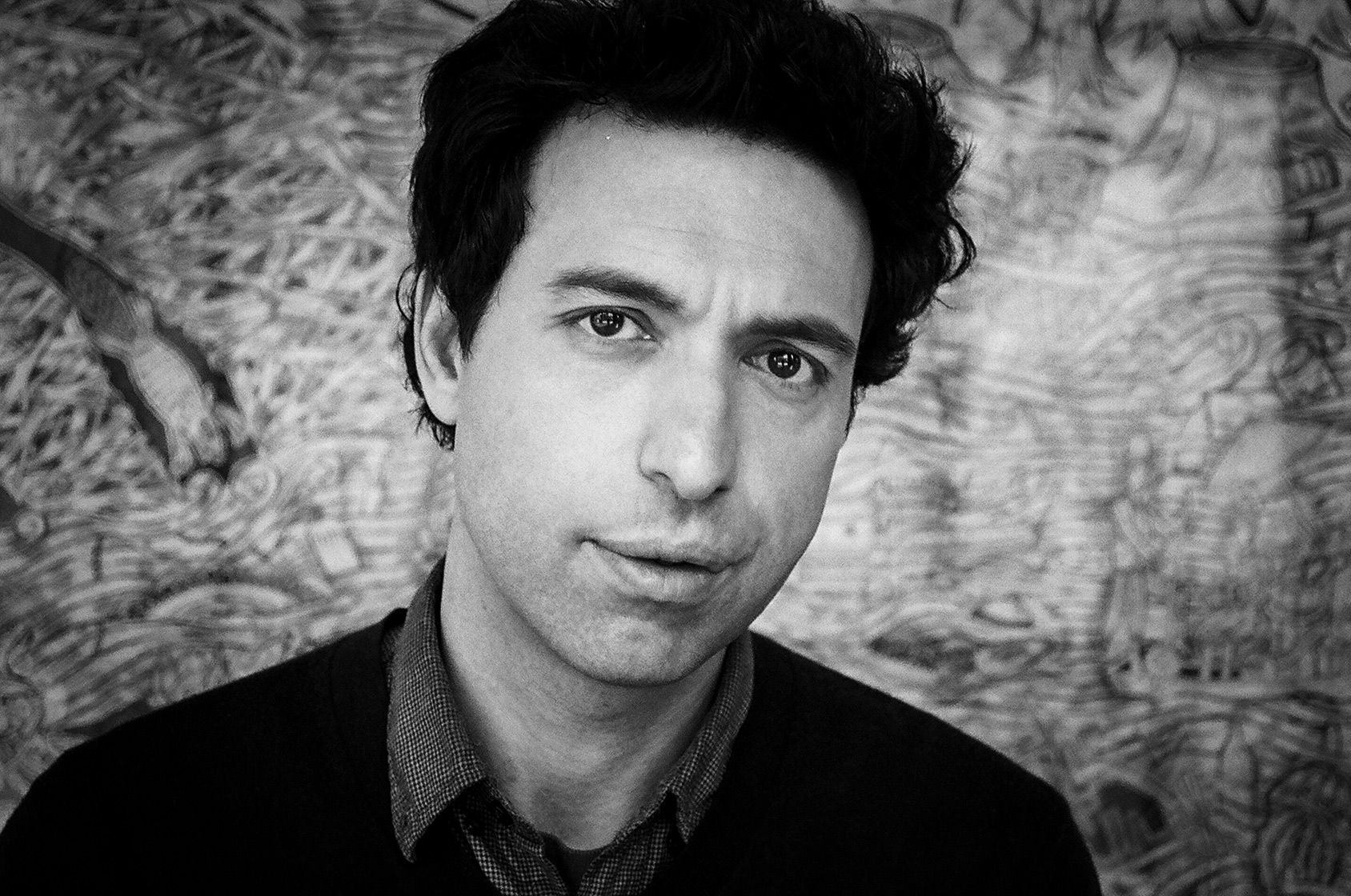

Another of Ray’s plotlines during Girls connected him to civic duty, and local politics, with his tenure on the local community board. This didn’t last very long—there’s that commitment issue again—but this leads to an interesting question: where will Ray be 10 years down the line? Karpovsky always loved the political inclination that the character had (he himself endorsed Bernie Sanders last year), but also notes his tendency to get easily frustrated.
“I can see Ray raising funds, getting some people together, purchasing a floating barge, going out into international waters, and experimenting with different types of utopian living,” he suggests. An Interesting idea, but ultimately, probably rather misguided: “That’s Ray’s thing to me—he’s trying to do good things, but because of his own issues and shortcomings, which he’s only half-aware of, he does it in a very tortured way. So, he’s trying to build a utopian society, but the barge is quickly filling up with water.”
Taking stock of the future of his character, and as the show wraps up, it’s a good time to reflect on the ways on which the show itself—and the cast and crew rather than the fictional characters— has evolved, too. As has been well documented (and easily seen) something that’s always plagued Girls was its lack of diversity. As Jenna Wortham pointed out in a 2012 Hairpin piece, the show gets a lot right, but left some rather glaring spots empty. Karpovsky, too, has noted this from the start, and repeated a possible reason for this: these characters are nothing if not imperfect; they have room to grow, and it’s been a learning experience for all involved.
One thing that’s certain is that the ride that has been Girls—in all of its messy, cringe-worthy, envelope-pushing, controversial, aberrant, thought-provoking, and exceptional six years—has been anything but uneventful. “I like to try different things,” Karpovsky summarizes of the show, and his next steps. “Because I get bored if I do the same thing for too long.”
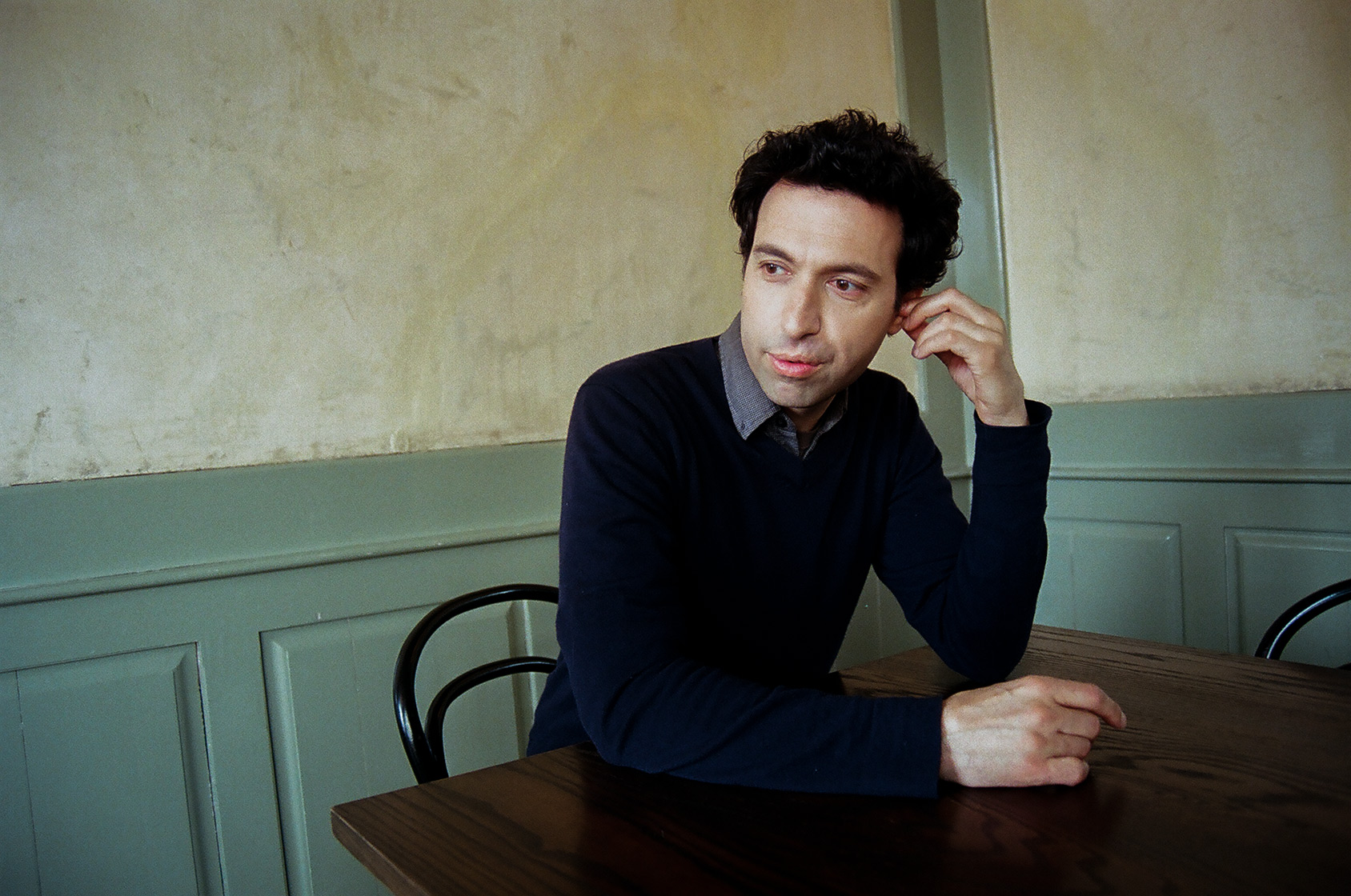

Photos by Jane Bruce.
You might also like 
















